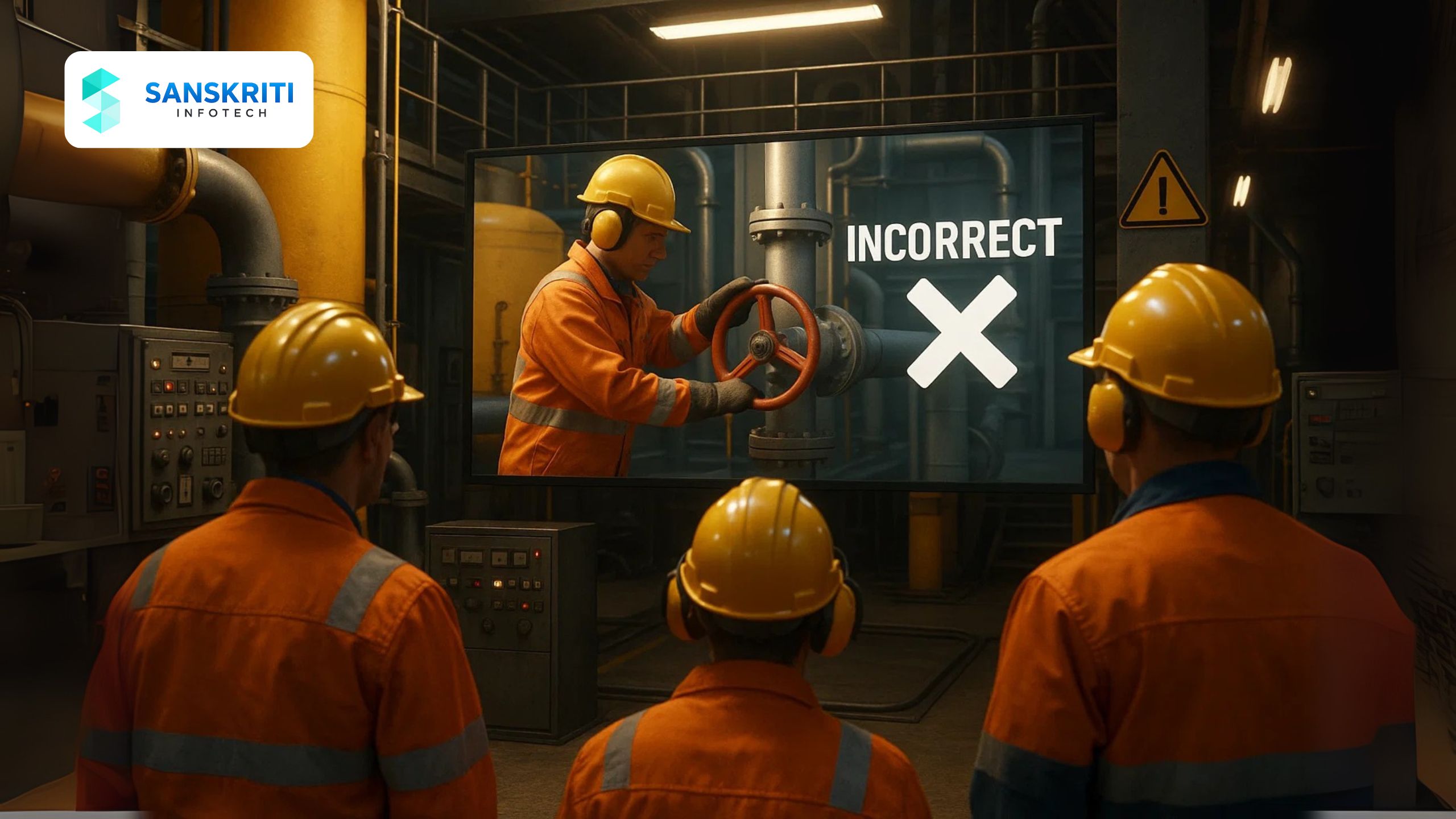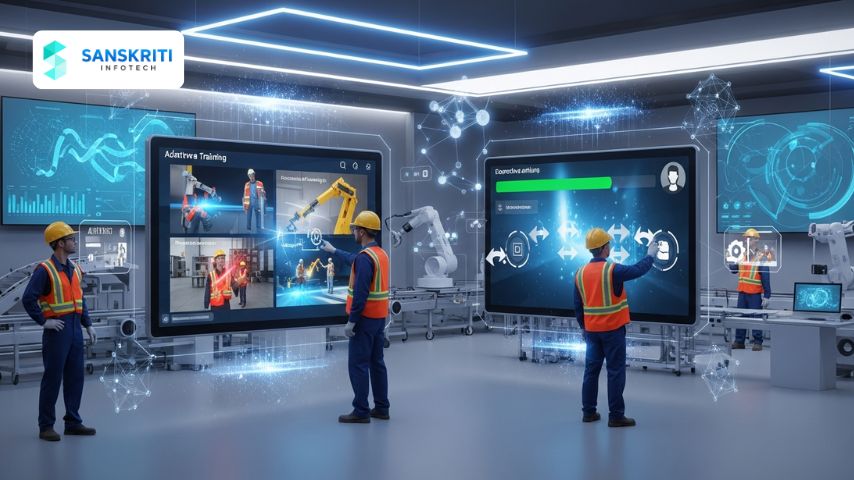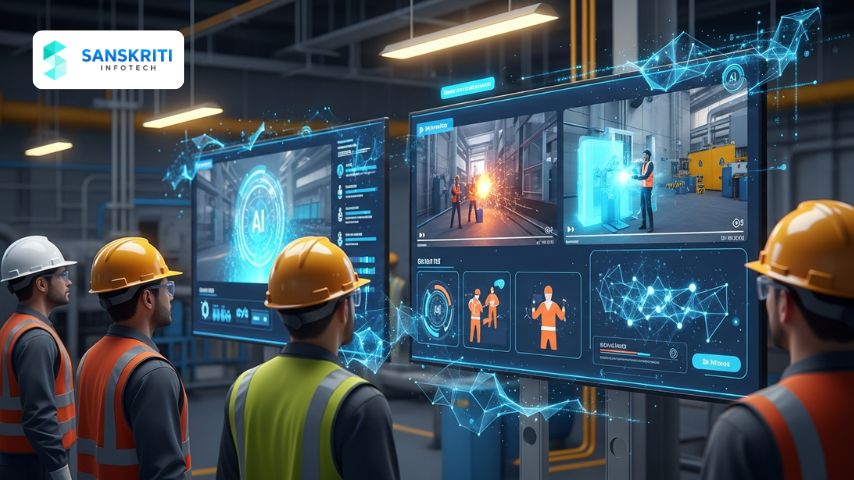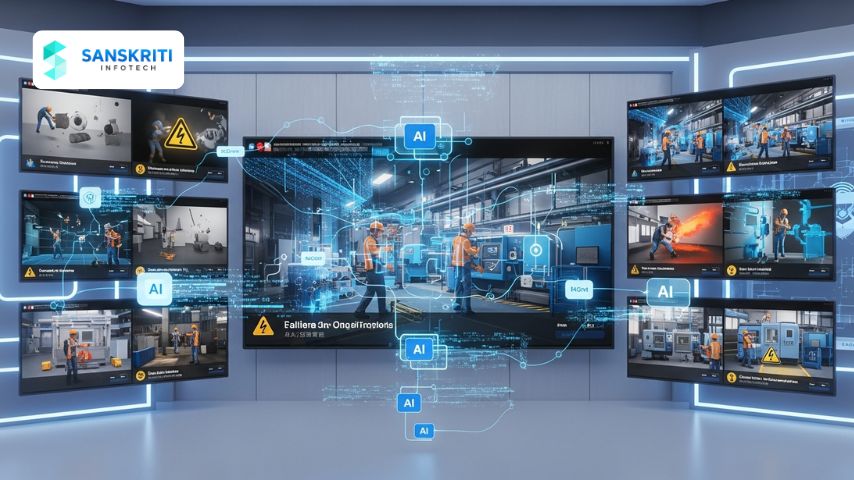Table of Contents
Introduction
Operational procedure training is the cornerstone of safety and consistency in industrial environments. When delivered effectively, it reduces human error, improves compliance, and ensures that employees can execute tasks confidently and accurately.
Unfortunately, traditional training methods—manuals, PowerPoints, or even live sessions—often fail to truly engage or stick. Enter 3D animation: an immersive, highly visual training tool that simplifies complex processes and communicates standard procedures with clarity.
In this blog, we explore how 3D operational procedure training can prevent costly industrial mistakes and elevate workforce competence.
What Is Operational Procedure Training?
Operational procedure training involves educating employees about standardized methods to carry out tasks across equipment, workflows, or departments. It ensures uniformity, reduces risk, and enables compliance across industries like manufacturing, oil & gas, and pharmaceuticals.
Limitations of Traditional Training Methods
– Text-heavy SOPs are difficult to digest
– Language barriers hinder comprehension
– Live training varies based on trainer skill
– Lack of visual context limits understanding
– High turnover demands repeatable training tools
Why 3D Animation Is a Game Changer
- Visual Clarity: Employees can see step-by-step actions visually
• Consistency: Every worker sees the same message every time
• Time-Saving: Shorter learning curves with higher engagement
• Safer: Simulate dangerous procedures without risk
• Multilingual-Friendly: Visual cues reduce dependency on text or audio
• Better Retention: Studies show 65–90% retention for visual content
Real-World Application: Oil Refinery Start-Up Sequence
An oil refinery used 3D animated training to teach employees about start-up and shutdown sequences of critical systems. The animations covered valve timing, safety interlocks, and pressure monitoring.
Outcome:
– Zero start-up errors after training
– Reduced training time by 30%
– Improved audit readiness and ISO compliance
How to Implement 3D Operational Procedure Training
– Identify high-risk or complex processes
– Break the process into visual steps
– Gather technical drawings or CAD files
– Add real-world logic, cause-effect simulation, and safety tips
– Distribute via LMS, mobile apps, or QR codes
Common Use Cases Across Industries
– Machine setup and maintenance
– Assembly line changeovers
– Chemical batch processing
– Equipment lockout/tagout (LOTO)
– Quality inspection and testing protocols
The ROI of Animated SOP Training
3D operational procedure training pays for itself by minimizing downtime, reducing error-related losses, and accelerating new employee readiness.
Clients report:
– Fewer mistakes
– Better audit scores
– Higher retention
– Streamlined onboarding
Conclusion
Operational procedure training shouldn’t be a one-size-fits-all, boring checklist. With 3D animation, organizations bring life to static SOPs and empower employees to operate machinery, follow workflows, and meet compliance standards confidently.
At Sanskriti Infotech, we specialize in custom 3D training modules tailored to your industrial process and safety requirements.
📞 Contact us today to bring clarity, safety, and performance to your training programs.






